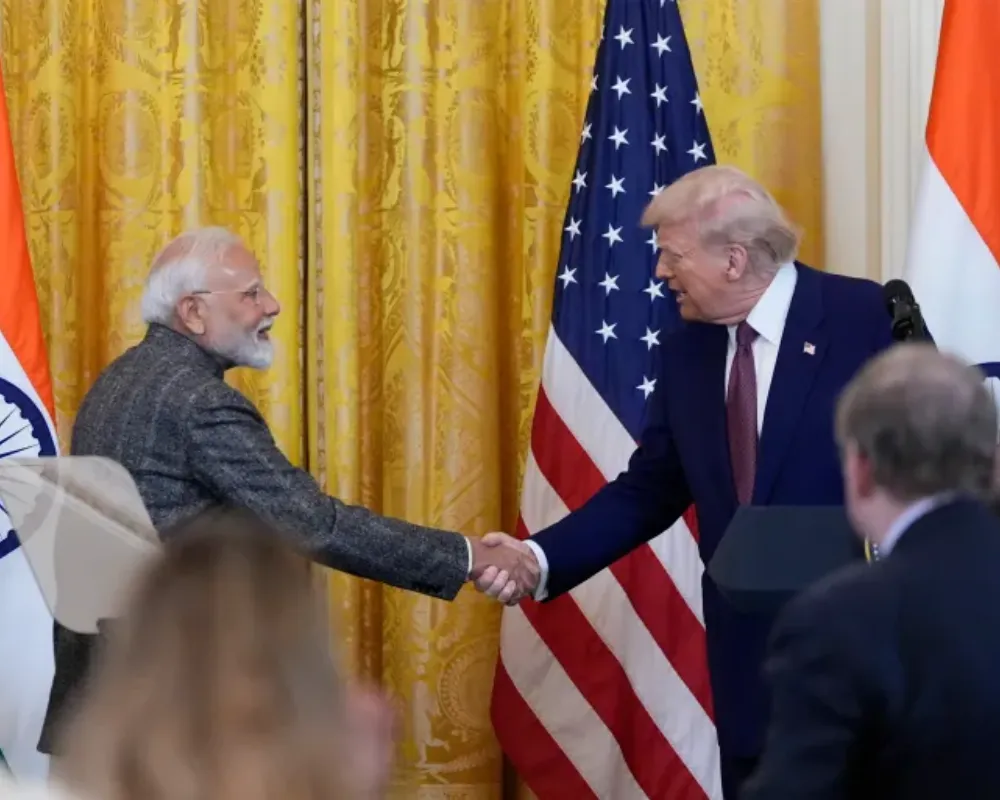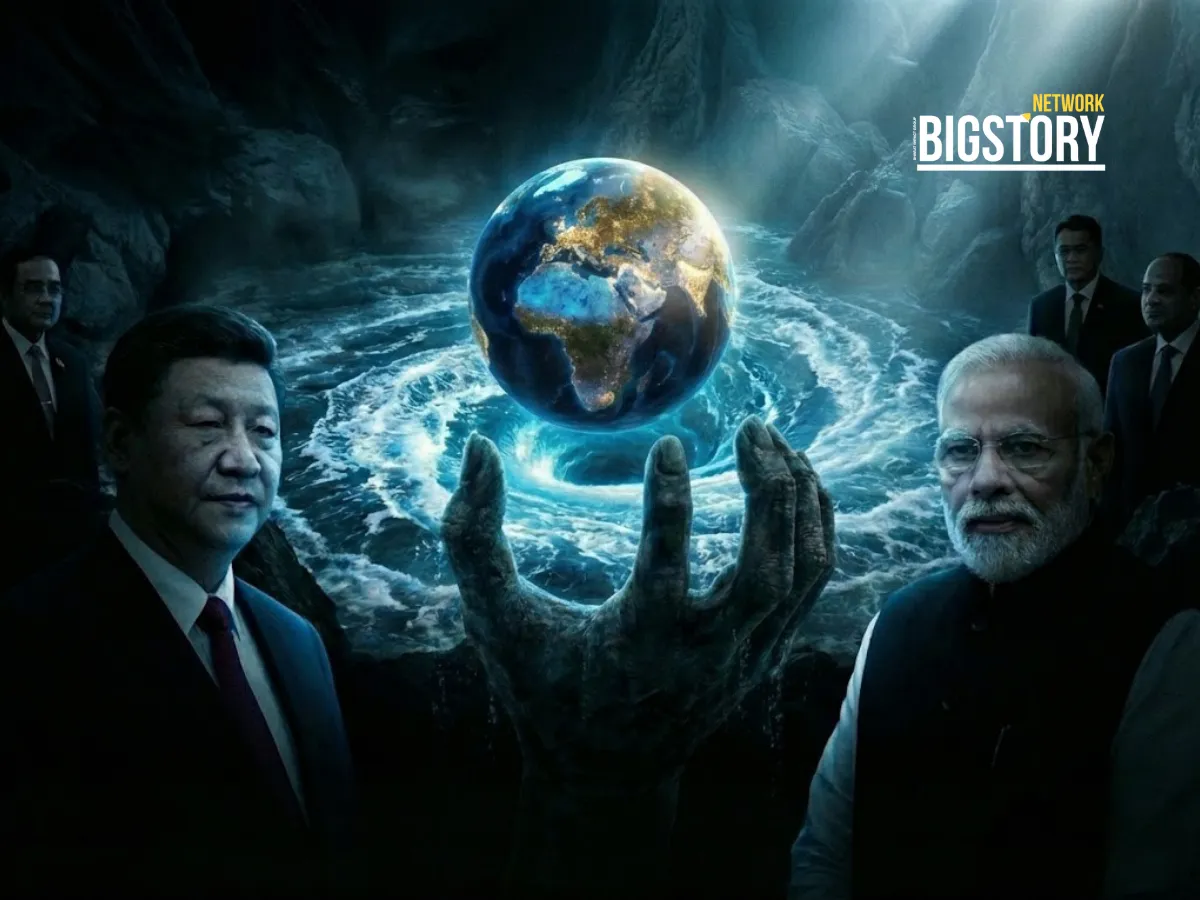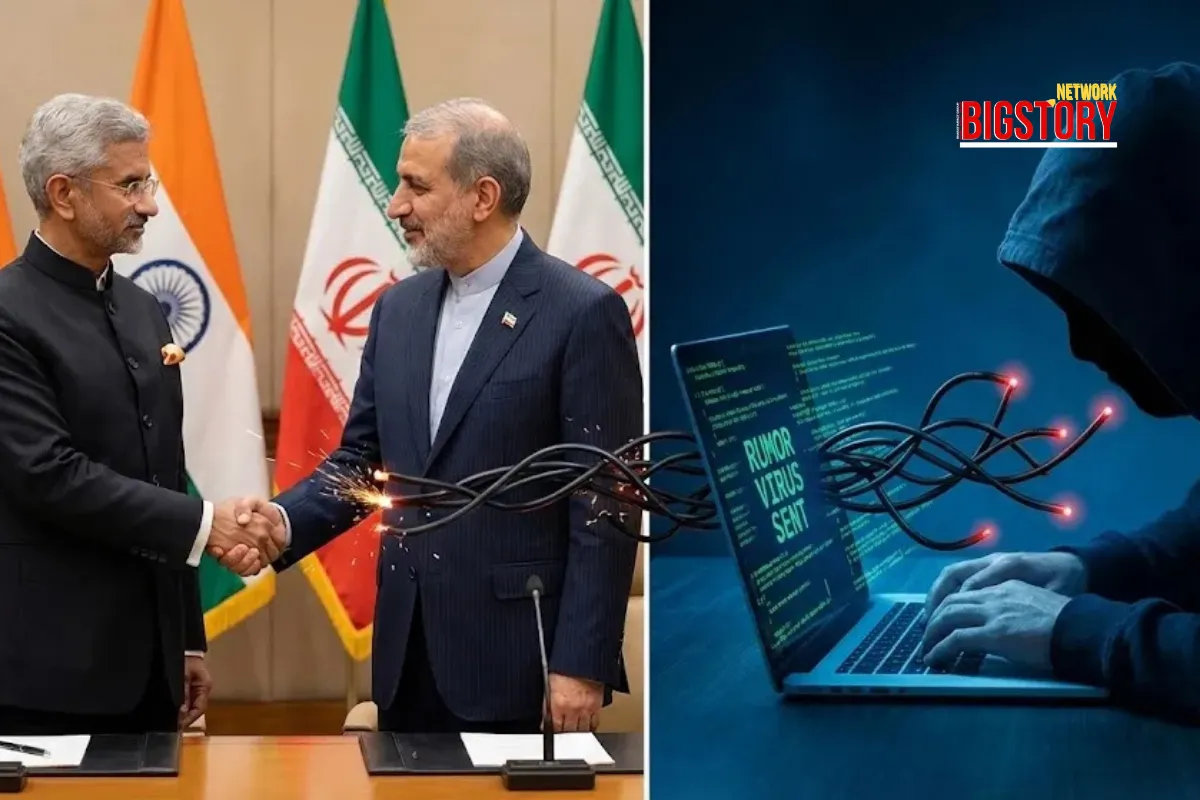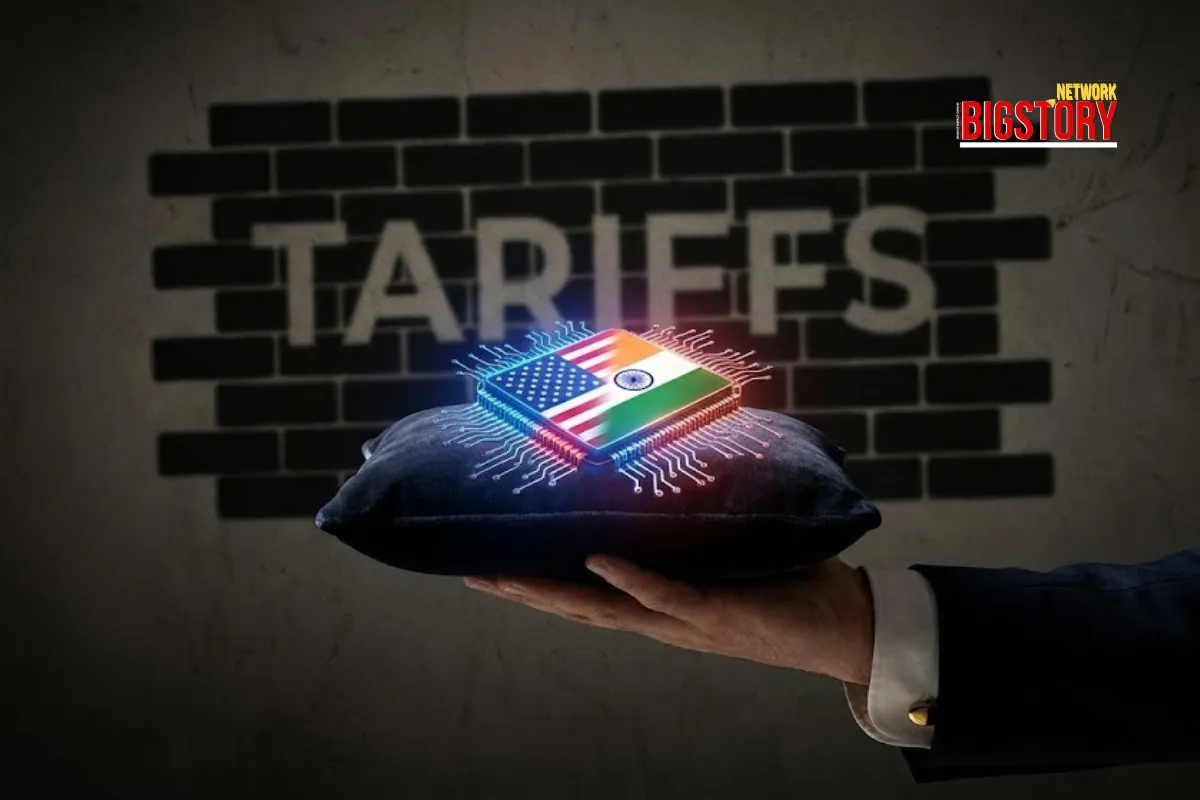Trump imposes tariffs on India over Russia ties, calling economies "dead." Simultaneously, he announces a US-Pakistan oil deal, suggesting future sales to India.
 Sseema Giill
Sseema Giill

In a significant move reshaping geopolitical and economic dynamics, US President Donald Trump has sharply criticized India for its continued ties with Russia, particularly its purchase of Russian oil and military equipment. This critique comes alongside the imposition of new tariffs on Indian imports and a striking announcement of a US-Pakistan agreement to develop "massive oil reserves," with a speculative hint that Pakistan could eventually sell this oil to India.
On Wednesday, President Trump announced a 25% tariff on Indian imports, effective August 1st, citing an "unfair trade imbalance" and India's ongoing oil purchases from Russia. He further indicated an "additional penalty" for India's trade with Moscow, though details on this penalty remain vague. In posts on his social media platform, Truth Social, Trump expressed a strong disregard for India's economic relationship with Russia, stating, "I don't care what India does with Russia. They can take their dead economies down together, for all I care." He criticized India's high tariffs and described its trade barriers as "strenuous and obnoxious."
Hours after these announcements targeting India, President Trump unveiled a new energy partnership with Pakistan. He stated that the United States and Pakistan would collaborate on developing Pakistan's "massive Oil Reserves," adding, "Who knows, maybe they'll be selling Oil to India some day!" This statement introduces a new layer of complexity to the regional energy landscape and hints at a potential shift in India's energy sourcing, which currently relies heavily on imports, including a significant portion from Russia.
India has emerged as one of the largest buyers of discounted Russian crude since the conflict in Ukraine began, with Russian oil accounting for a substantial portion of its imports. India has consistently maintained that its energy procurement decisions are driven by national interest and market availability.
While Pakistan's current proven oil reserves are considered modest by global standards, recent geological surveys in its Offshore Indus Basin have indicated potential hydrocarbon formations, though these claims are not yet commercially substantiated by drilling. The feasibility of Pakistan exporting oil to India would depend on confirmed reserves, large-scale production, and significant improvements in diplomatic and trade relations between the two historically rival nations.
The dual announcements from the White House underscore the Trump administration's assertive approach to trade and foreign policy, particularly concerning countries maintaining strong economic and strategic ties with nations deemed adversarial to US interests. The implications for India's economy, its energy security, and regional power dynamics are significant and will be closely watched by international observers.






Sign up for the Daily newsletter to get your biggest stories, handpicked for you each day.
 Trending Now! in last 24hrs
Trending Now! in last 24hrs



